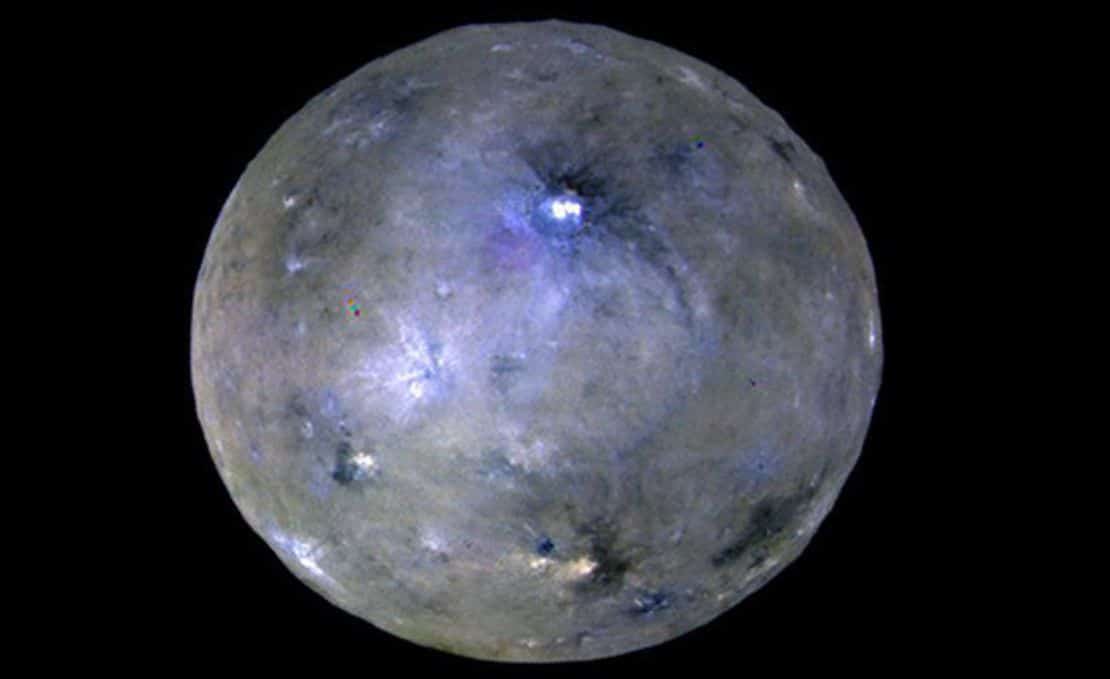Ceres is a celestial body that has drawn attention historically, and in fact, it was not always a dwarf planet. After putting that label on it, NASA sent the Dawn space probe to explore it and now they have discovered that Ceres is a planet with oceans and geological activity.
This dwarf planet is located in the asteroid belt between Mars and Jupiter, and Dawn already showed us pictures of its surface a few years ago. Now there is more data and the Occator crater could be better studied, among other aspects, which the space agency already had well documented and which, due to its age and characteristics, was considered essential to understanding how ice forms on the planet.
Nothing from a frozen and idle world
The fruits of these investigations, thanks to the fact that Dawn observed the star only 35 kilometres from its surface in 2018, are in a total of seven studies published in Nature. In them, it has been determined that there is a presence of liquid in the interior of the dwarf planet, with what could have been a habitable world at some point.
Thus, what is the largest object in the asteroid belt is not a static celestial body, but rather has geological activity. The researchers assumed that the Occator crater had deposits made of salts, a material that is the brightest found on Ceres and whose origin was not very clear.
With the new data and infrared mapping, it has been known that there is hydrohalite in this crater, a salt (hydrated sodium chloride) that is common in sea ice and has not been seen outside of Earth to date. A fact that supported the previous hypothesis that in the bright deposits there was water since the formation of hydrohalite requires liquid water and hydrothermal activity, with the addition that the compound would be less than 100 years old.
With the presence of salts, it is also explained that there may be liquid water (by reducing the freezing temperature) and that the planet can still house brine deposits today. They believe that the impact that resulted in Occator would have fractured the surface so that this salty underground water leaked out.
In this way, Andreas Nathues, author of one of the studies and planetary scientist at the Max Plank Institute, explains that they have concluded that “there is probably some low activity going on” on Ceres, being a real surprise that not the entire ocean was frozen. The images have also made it possible to identify more salt deposits in other areas of the dwarf planet, which has helped to better understand the activity of liquid in Ceres.
This opens up the hope that future research on other ocean worlds will shed more light on these aspects, with their glances towards Europa, Jupiter’s moon which is one of the strongest candidates according to NASA to find life and where it is already found water vapor. The images provided by Dawn represent, according to Julie Castillo-Rogez, a planetary scientist at the Jet Propulsion Laboratory (JPL) and co-author of six of the new studies, “a good reference to support future observations of Europa and Ganymede,” although qualifying that there is much to know about Ceres.
